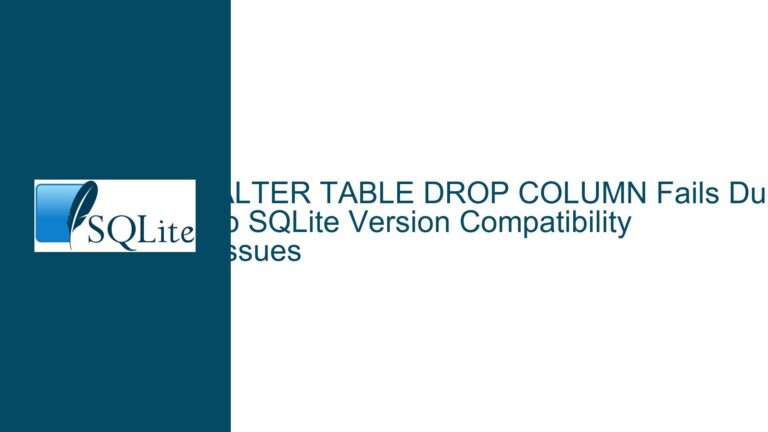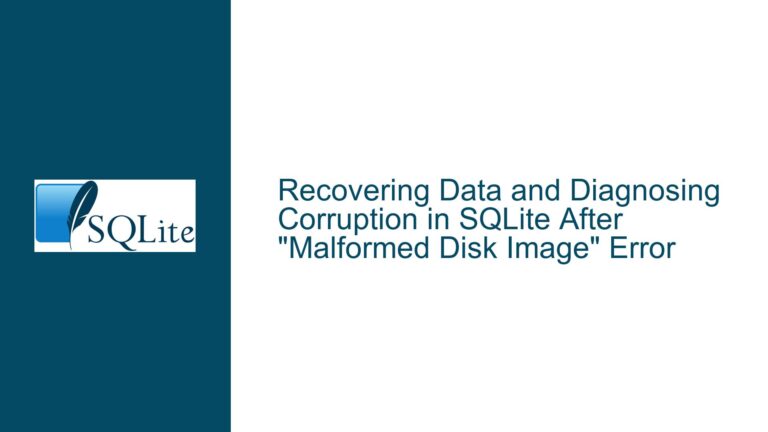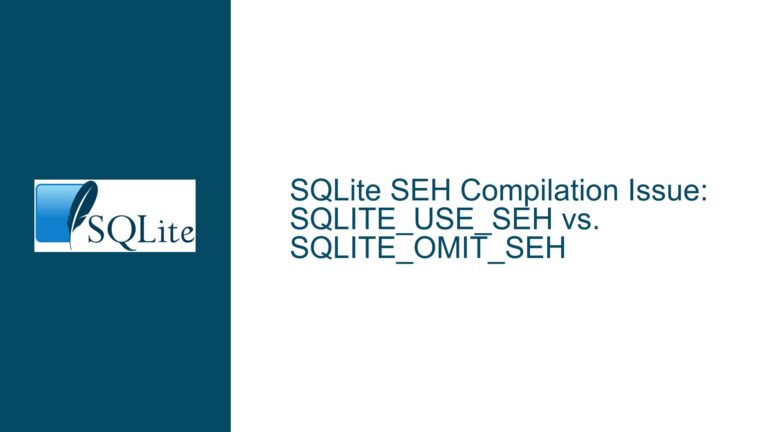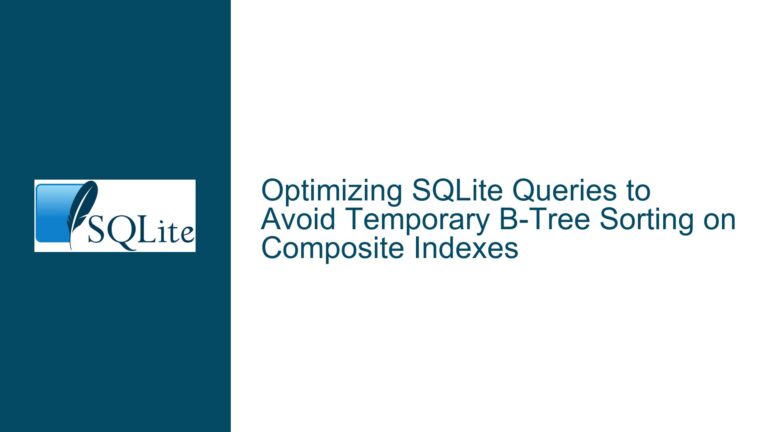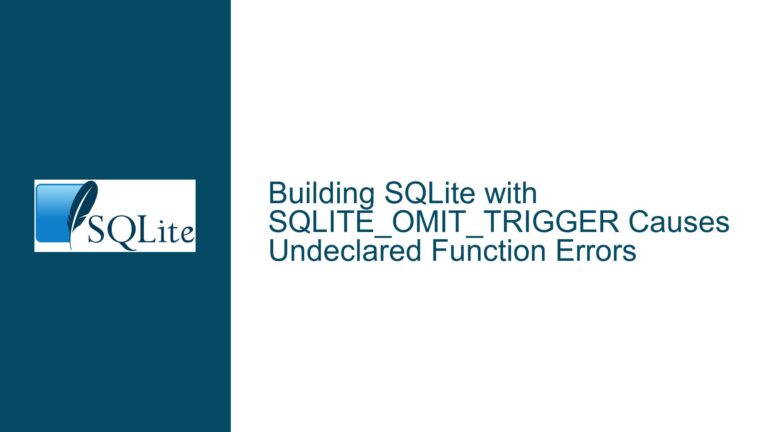Updating Multiple Rows via JSON Array in SQLite: Handling NULL Values
Issue Overview: JSON-Based Bulk Update Producing NULL Values Instead of Expected Numbers The core challenge involves attempting to update multiple rows in an SQLite table using values extracted from a JSON array. The table t contains columns f_id (foreign key), t_id (primary key), and amount (numeric value). A JSON object contains an array of objects…

